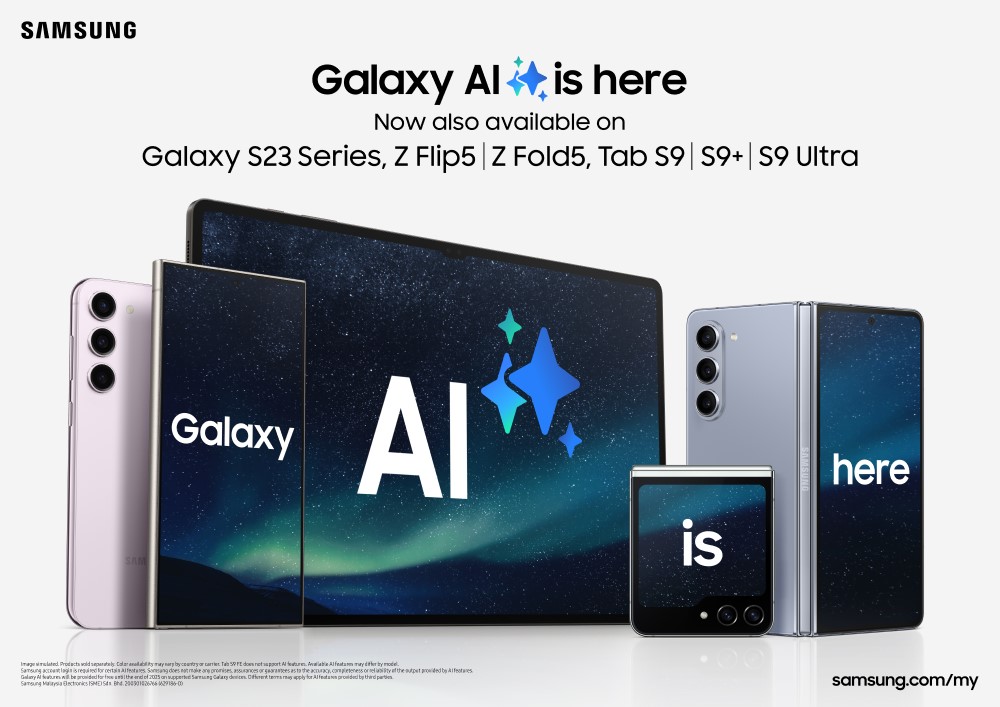Samsung’s Galaxy AI could be heading for a major upgrade as reports suggest that the company is exploring a partnership with OpenAI. This collaboration might involve integrating ChatGPT into Samsung’s Galaxy AI services, setting the stage for a potential shift in how AI operates on smartphones.
Samsung’s Current AI Landscape and Future Possibilities

At present, Samsung employs a mix of its large language models (LLMs) and Google’s Gemini AI to power the AI features on Galaxy devices. However, a potential ChatGPT integration could significantly change the landscape. This is similar to Apple’s use of ChatGPT for certain tasks when its on-device models need extra support. Samsung could adopt a comparable strategy, combining in-house AI with ChatGPT for more complex interactions.
The prospect of integrating ChatGPT with Samsung’s existing AI systems raises questions about how the tech giant plans to balance these different AI platforms. For now, the discussions between OpenAI and Samsung are in the early stages, making it difficult to predict the precise outcome. Yet, if they proceed, it could signal a major shift in Samsung’s AI strategy.
OpenAI’s Push to Challenge Google’s Dominance
OpenAI has been making bold moves in the tech industry, aiming to challenge Google’s long-standing dominance. The recent introduction of OpenAI’s SearchGPT marks its entry into the search engine market, directly competing with Google’s core strength. The rumors of a ChatGPT-powered browser suggest that OpenAI has ambitions beyond mere search functionality. A browser that leverages AI for dynamic responses could disrupt the way users engage with the web.
This possible partnership with Samsung is just another step in OpenAI’s strategy to gain ground against Google. Samsung has been a close ally of Google, relying heavily on its AI services. However, introducing OpenAI’s AI capabilities into the Galaxy ecosystem could weaken this relationship, especially amid ongoing legal battles where the U.S. Department of Justice scrutinizes Google’s dominant position in the market.
Implications of an AI-Powered Browser for Google
The idea of OpenAI developing its own browser—powered by AI—poses significant implications for Google. Chrome currently dominates the browser market, but an AI-integrated browser from OpenAI could offer a fresh, intelligent way to navigate the web. If OpenAI’s efforts materialize, the digital landscape may witness a shake-up. Google, known for its ad-based revenue model, might face challenges if OpenAI finds new ways to handle user data without relying heavily on ads.
Experts speculate that if Google is forced to sell Chrome as a result of the DOJ’s pressure, OpenAI could be a strong candidate for acquiring the browser. Such a move would provide OpenAI with a ready-made platform to infuse with its AI expertise, potentially ushering in a new era of web browsing.
Samsung and OpenAI: A Potential Game-Changer
The possibility of a collaboration between Samsung and OpenAI could trigger a wave of competition in the AI sector. Samsung, a major player in the electronics industry, could gain a unique advantage by incorporating OpenAI’s advanced AI capabilities into its devices. This partnership would not only intensify the rivalry between Google and OpenAI but also reshape the future of AI-driven technology on mobile platforms.
If this alliance moves forward, the stakes will be high. It could redefine how consumers interact with their smartphones, potentially making Samsung devices more intelligent and responsive than ever. The implications for the AI industry would be profound, as more companies might feel the pressure to innovate and stay relevant.
Conclusion: A New Era of AI in the Making?
While the negotiations between OpenAI and Samsung remain speculative, the mere possibility highlights the ongoing competition in the AI industry. If the partnership takes shape, it could change how AI is integrated into everyday devices, challenging Google’s established dominance. Until an official announcement is made, all eyes will be on Samsung and OpenAI as they navigate the future of AI-powered technology. The tech landscape is rapidly evolving, and this potential collaboration could be a key turning point.
As the AI arms race heats up, it’s clear that companies like OpenAI are not content to remain in the background. They aim to lead the charge in AI innovation, potentially redefining the digital experience as we know it













 By
By
 By
By







